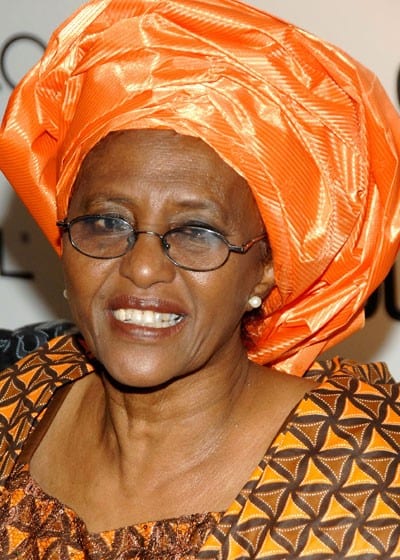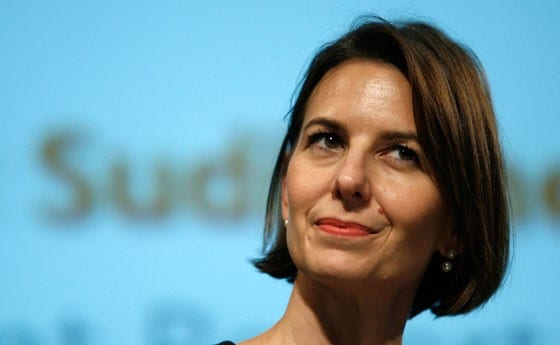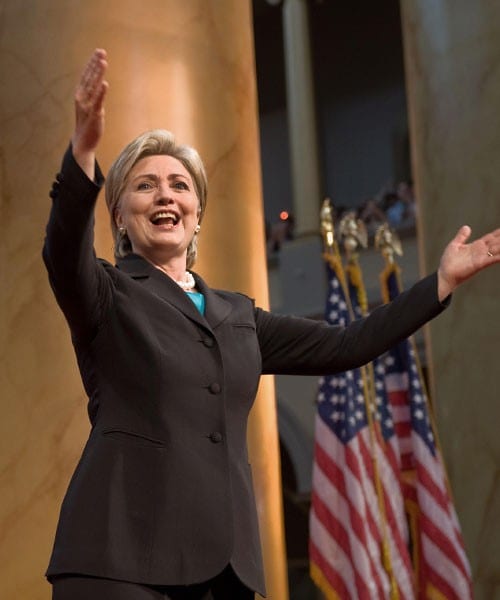While women’s rights have progressed in leaps since the inaugural International Women’s Day in 1911, gender inequality still permeates across boards, industries and countries. But through the efforts of remarkable women around the world, the fight to close the gender gap continues to gain traction.
Today we celebrate 15 women whose ground-breaking work has contributed to empowering the lives of other women and girls around the world and building future generations of female leaders.
Leila Janah, founder, Samasource
Growing up in the US, Leila Janah was always interested in social justice, but it was a college trip to India that sparked a desire to build her own social enterprise. Working at the World Bank and studying African development at Harvard, Jana became frustrated with the “large developmental approach” to providing aid in developing countries. It was while working for a consulting firm that sent her to India to help a large outsourcing company that she realised the potential for an inverted model to generate work and income for thousands of people. Samasource was born. The idea is simple: Samasource takes work that is typically given to large outsourcing firms and instead assigns it to youth and women who have been trained to perform the job.
Cherie Blair pictured speaking during the second meeting of the International Council on Women’s Business Leadership in November 2012. (Image: MANDEL NGAN/AFP/Getty Images)
Cherie Blair, The Cherie Blair Foundation:
Always outspoken, British barrister Cherie Blair is vocal about the need for professional women to be mentored to “make it in a man’s world.” Through the Cherie Blair Foundation, established in 2008, she helps fund start-ups for women entrepreneurs living in impoverished countries, enabling these women to set up their own businesses and become financially independent. She recently sealed a contract with telecommunications company Qualcomm in the UK to bring smartphones and laptops to Malaysian women to use for e-mentoring. In 2011 she was appointed vice-chair of the International Council on Women’s Business Leadership.
“Women’s rights are vitally important not just for improving the position of women but for the health, strength and prosperity of their communities and societies.”
Dr Catherine Hamlin, co-founder, the Addis Ababa Fistula Hospital
The New York Times once referred to Australian doctor Catherine Hamlin as a modern-day Mother Teresa, and there’s no doubt she has made an enormous difference to the lives of thousands of women and children. A trained obstetrician and gynaecologist, Dr Hamlin co-founded the world’s only free obstetric fistula repair surgery with her late husband Reginald, and has spent the past 24 years helping women living in poverty who have suffered through difficult and often life-threatening childbirths. Through her work at the Addis Ababa Fistula Hospital she’s helped nearly 40,000 women and is training a new generation of Ethiopian women to become midwives proficient in treating fistula.
Dr. Hawa Abdi attends the 20th annual Women of the Year awards in November 2010 in New York City. (Image: Ben Gabbe/Getty Images)
Hawa Abdi, Somalian human rights activist and doctor
She’s been described as equal parts Mother Teresa and Rambo, but Hawa Abdi’s not focused on labels. Instead, she’s busy fighting exhaustively to provide healthcare, and in many cases, escape for women and children in war-torn Somalia. After winning a scholarship to study medicine, she pursued her dream of becoming a doctor and went on to become Somali’s first female obstetrician/gynaecologist. Twenty-five years ago she opened a one-room clinic in Somalia’s largest city, Mogadishu, which has grown to a 400-bed hospital. She founds the hospital, which she runs with her two daughters, out of her own pocket and through donations. Since opening the medical centre, she has fended off mobs of angry Somali men, been held hostage by Islamic militants, and turned her medical centre into a camp for 90,000 displaced Somalis, most of them women and children who have sought escape from war and debilitating famine.
“I’ve been working for the country for the past 20 years. What have you done?”
Malala Yousafzai, schoolgirl and activist
The unwitting face of the global struggle for gender equality, Malala Yousafusz, has broken down barriers since she came to global attention after writing a blog for BBC exposing the realities of living under Taliban rule in Pakistan. Despite an assassination attempt by the Taliban in 2012, she maintains that she is committed to fighting for the girls in her country to receive unfiltered and equal access to education.
“I want every girl, every child to be educated.”
Leymah Gbowee, Liberian peace activist and the 2011 co-recipient of the Nobel Peace Prize, pictured in August 2012. (Image: Ishara S.KODIKARA/AFP/GettyImages)
Leymah Gbowee, Liberian peace activist
A trained social worker and trauma activist, Leymah Gwobee’s powerful leadership helped galvanize thousands of women to form a movement that was pivotal in ending the second Liberian civil war in 2003. Now a dynamic women’s rights campaigner, she’s fighting the war on violence against women. She was awarded the 2011 Nobel Peace Prize alongside Liberian president Ellen Johnson Sirleaf, and Tawakkol Karman for the joint “non-violent struggles for the safety of women and for women’s rights to full participation in peace-building work”. In October 2012 she resigned from her position as head of the Peace and Reconciliation Commission in Liberia, citing corruption and nepotism within the government.
“It’s time for women to stop being politely angry”
Ernst & Young Global Vice Chair of Public Policy Beth Brooke speaks on stage at the 40 For 40 Event, 40 Years of Title IX, 40 Women Who Have Made an Impact in June 2012. (Image: Larry Busacca/Getty Images for WICT)
Beth Brooke, global vice chair, Ernst & Young
She’s the Global vice chair, public policy at mega-firm Ernst & Young, the 100th most powerful women in the world according to Forbes and she’s also an outspoken activist on advancing women in business. She has spoken often on the need for gender diversity to strengthen corporations and on the impact that financially empowered women can have as major economic forces in emerging markets.
“All leaders—men and women—need to mentor future leaders, and make sure that they are challenged and supported to make a difference in the broadest sense. But I think as women, we all have a particular role to play in helping other women.”
Noorjahan Akbar, co-founder, Young Women for Change
Having experienced the privilege of an education, something few women in her country are able to receive, Akbar has been inspired to fight for gender equality and end the discrimination of women in Afghanistan. In 2011, exhausted by the harassment that women were subject to, she banded together 50 people – including men – and led a rally though the streets of Kabul to protest against the treatment of women. She’s also the co-founder of Young Women for Change, an organization that works to fight for gender equality in Afghanistan. The group opened Kabul’s first all-female internet cafe in April last year, allowing women the freedom to surf the internet away from the watchful gaze of their husbands and fathers.
Maria Eitel, president and CEO of the Nike Foundation, discusses how to increase the economic opportunities for adolescent girls and young women during the Adolescent Girls Initiative in Washington DC in 2010. (Image: KIMIHIRO HOSHINO/AFP/Getty Images)
Maria Eitel, CEO of the Nike Foundation
Maria Eitel may be at the helm of a multi-million dollar corporation, but she’s also a woman passionate about changing conditions for girls and women in developing countries. She’s putting the needs of disadvantaged girls on the global agenda by driving resources through a number of initiatives, including The Nike Foundation’s Girl Effect project which aims to bring 50 million adolescent girls out of poverty by 2030. In less than a decade, Girl Effect has created ground breaking research that has put the needs of impoverished girls on the global agenda by promoting the powerful social and economic changes that can bought about by investing in and empowering girls.
Playwright Eve Ensler attends the ‘Emotional Creatures’ Press Preview at Signature Theatre Company’s in October 2012 (Image: Rob Kim/Getty Images)
Eve Ensler, playwright, activist
Eve Ensler’s been making headlines recently for her global V-Day movement, but that’s not where her work ends. The creator of The Vagina Monologes, she’s leveraged an organization that has raised $80 million to fund some 12,000 programs that effectively combat violence against women. She’s the founder of The city of Joy in Haiti, where she spent February 14, rousing the passion of thousands of Haitians who joined millions across the world in ‘rising up’ to take a stand in ending violence against woman.
“We are focusing on bringing the stories of these women to the world. These stories must be told if we are going to stop this from happening again.”
Susan Godwin, farmer
Susan Godwin may not have a name that’s recognizable on a global scale, but her story is synonymous with the entrepreneurial sprit of women and the impact that financially empowered women can have on the global economy. Born into a farming family, Godwin took on the family business on a small farm in Nigeria. Armed and empowered with the knowledge she received through a farming program, Godwin was able to build a sustainable business that generates income for her family, and injects profits into her community. She’s also employed three other women, who, through their employment, have gone on to start businesses of their own.
Hillary Clinton, former US Secretary of State
She’s currently dodging the ‘will she, won’t she run’ talk since resigning from Obama’s Cabinet earlier this year, but Clinton’s advocacy for women’s rights is something she’ll always talk about. As the first lady she played her part in promoting gender equality, speaking fervently about making gender issues a global subject. Her position carried through her work as US secretary-of-state where matters concerning women’s empowerment underscored her policy work. She was instrumental in getting President Obama to sign the Presidential Memorandum, her final act as secretary of state in 2013, ensuring Melanne Verveer’s position in the State Department as ambassador-at-large for Global Women’s Issues would remain a permanent post.”
If there is one message that echoes forth from this conference, let it be that human rights are women’s rights and women’s rights are human rights once and for all.”
Miriam Were, chair, National Aids Council, Kenya
Miriam Were started out as a high school teacher, before enrolling into medical school after noting the lack of basic health services available to her students. This has guided her work and Dr Were is now focused on bringing basic health rights to women and children in East Africa. She was also responsible for orchestrating an HIV/AIDS initiative that has reduced the prevalence of HIV and AIDS-related deaths in Kenya.
Rosalie Kunoth-Monks, Indigenous Australian actress and activist
Regarded as one of Australia’s most formidable Indigenous rights activists, Rosalie Kunoth-Monks has played an instrumental role in exposing the third-world living conditions of Aboriginal people because of government policies. Harnessing a fierce passion for social justice, she has focused her efforts on giving voice to Indigenous Australians in politics, advising governments and was honoured with the Order of Australia Medal for service to the Aboriginal community.
President of Malawi Joyce Banda arrives for a lunch with Queen Elizabeth II and Commonwealth Nations Heads of Government in June 2012 (Image: Lefteris Pitarakis – WPA Pool /Getty Images)
Joyce Banda, president of Malawi
The first woman to become President of Malawi and only the second female president of an African nation, Banda has made women’s empowerment a personal mission. Before taking on politics, she was the head of the National Association of Businesswoman, a charity that provided loans to women and enabled them to develop economic independence. Since assuming presidency, she remains a staunch advocate for the education of girls, establishing the Joyce Banda Foundation, which offers free secondary education to orphans and has initiated programs that ensures improved conditions for working women, focusing on childcare and sanitation.

















